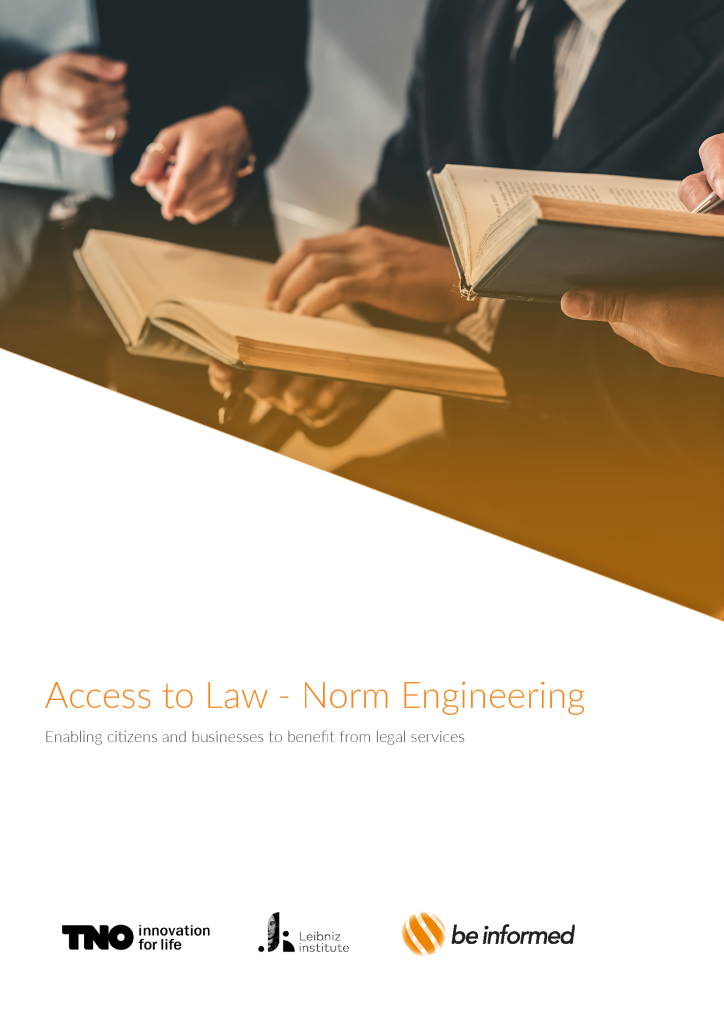Summary
Every citizen is assumed to know the law. However, the sheer magnitude of applicable law, its complexity, and multiple changes to the corpus of rules applicable are a struggle for most citizens and even legal experts. Over the last 30 years, IT technologies have been developed to support citizens, legal experts, governments, and non-governmental organizations in understanding applicable law and applying law to their cases. This makes citizens more self-reliant, creates equality before the law, reduces compliance costs and efforts for citizens and businesses, and saves monitoring and enforcement effort for governmental agencies.
The major challenge addressed over these last three decades was how to make those IT systems conformant to the norms expressed in law. Several technological breakthroughs have contributed to the current situation, such as the xml-isation of sources of norms and improved accessibility through public and private websites to legislation and case decisions, natural language processing, Semantic Web and AI technologies to support legal decision-making and quite recently an open standard for expressing and communicating interpretations of norms, (e)Flint. The latter allows for the exchange of interpretations among stakeholders and with IT vendors building legal-support technologies.
TNO, the Leibniz Institute, and Be Informed joined forces to combine the above mentioned breakthroughs in practical solutions and help organizations improve the process from creating policies to deploying rules into day-to-day business operations. The partnership promotes fair and effective regulations via technology assisted replicable design and implementations of norms. The partnership develops and shares open-source Legal Engineering and Normative Systems components. These components feature unambiguous, human and computer readable formal interpretations of norms, as well as certified implementations of components that allow reasoning with regulations, effect and burden calculations, discovery of (in)consistency with other norms and the processing of comments on proposed norms.










